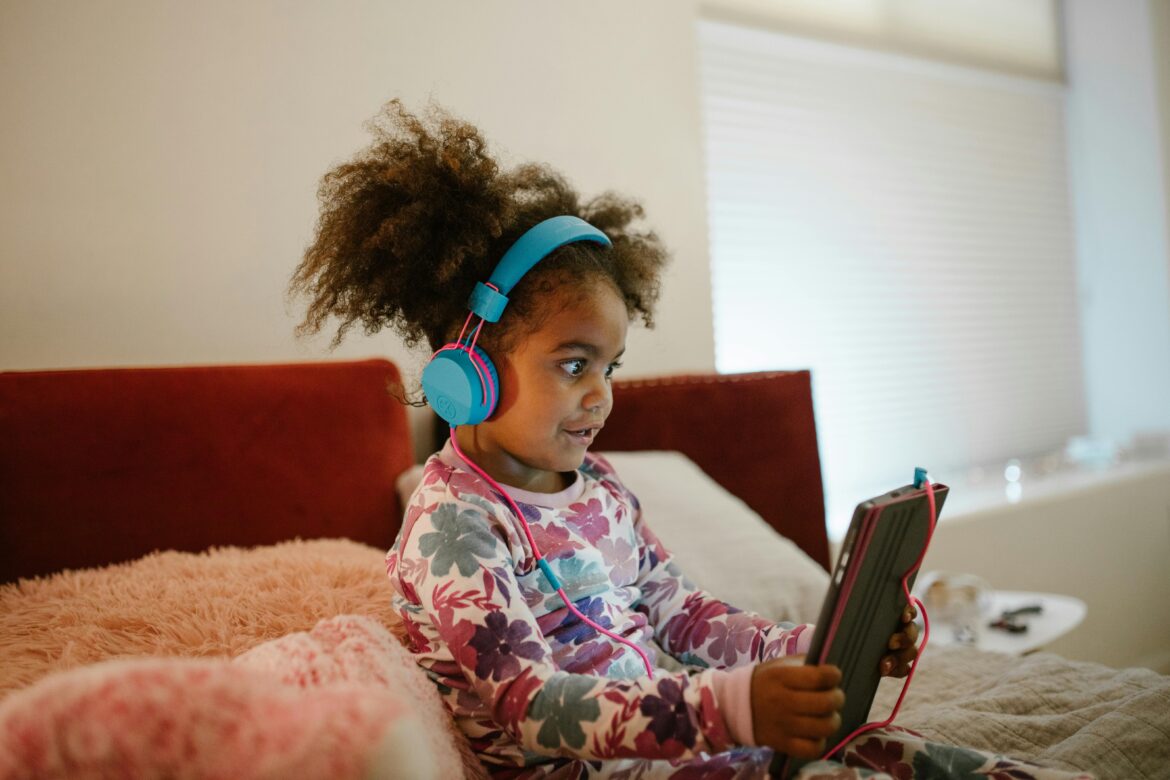Screens are everywhere in our daily lives; from the moment we wake up to the moment we go to bed. Children are growing up in this digital age, surrounded by smartphones, tablets, TVs, and computers. Do you know that up to 30% of a child’s waking time is spent in front of a screen. While screens offer benefits, finding the right screen time balance and mental health in children is essential to manage their use carefully.
Finding the right balance in screen time for children is crucial for their development and well-being. Too much screen time can lead to physical, mental, and emotional issues, while a healthy balance can enhance learning and social connections.
Understanding the complexities of screen time is the first step in managing it effectively. This article will explore the impact of screen time on children’s mental health, the importance of setting limits, and practical tips for parents.
Screen Time Balance and Mental Health in Children
The amount of time your child spends using devices with screens such as televisions, tablets, computers and smartphones is what we call screen time. It can be passive like watching TV or interactive like playing video games or using educational apps.
Screens can be a double-edged sword. While they offer educational content and entertainment to your child, excessive screen time can have unintended consequences for your little one’s development. The concerns about its impact on children’s mental health have grown exponentially. Excessive screen time has been linked to a variety of mental health issues in children such as:
Depression and Anxiety
Constant exposure to curated, often idealized online lives can lead to feelings of inadequacy and social comparison. Cyberbullying and online harassment are additional factors contributing to these mental health concerns.
Sleep Disturbances
The blue light emitted by screens interferes with melatonin production, a hormone essential for sleep. Irregular sleep patterns can disrupt a child’s biological rhythm, leading to mood swings, difficulty concentrating, and increased irritability.
Social Isolation
While technology facilitates connection, excessive screen time can hinder face-to-face interactions, leading to feelings of loneliness and isolation. Developing strong interpersonal skills is crucial for emotional well-being, and reduced social interaction can negatively impact this development.
Addiction
The addictive nature of certain apps and games can lead to compulsive screen use, neglecting other important aspects of life. This can result in academic difficulties, strained relationships, and decreased physical activity.
Attention Span
Too much screen time can affect a child’s ability to concentrate and focus on class and on activities like reading, studying and problem solving. It also affects their mental and emotional health, leading to issues such as anxiety, depression, decreased attention span and difficulty focusing on tasks.
Delayed Development
Excessive screen time can significantly hinder a child’s overall development, particularly in three crucial areas: language, motor skills, and social skills.
Language Development: Screen time often replaces face-to-face communication, limiting a child’s exposure to spoken language. It can also interfere with a child’s natural inclination to babble and imitate sounds, crucial for language development.
Motor Skills: Excessive screen time often displaces active play, essential for developing gross and fine motor skills. Children who spend excessive time on screens may experience delays in reaching developmental milestones such as crawling, sitting, and walking.
Physical Inactivity
It can lead to physical issues like eye strain and poor posture, contributing to a sedentary lifestyle. Sedentary screen time can contribute to childhood obesity.
Creating Healthy Screen Time Habits
Establishing healthy screen time habits is essential for your child’s well-being. It’s about finding a balance that allows for both digital engagement and real-world exploration.
Set Clear Limits
Determine appropriate screen time limits based on age recommendations for your child. Be consistent and stick to the rules. For children aged 2 to 5, limit screen use to one hour per day of high-quality programming.
For older children, set consistent limits on the amount of daily screen time, ensuring it does not interfere with sleep, physical activity, and other essential behaviors.
Create Screen-Free Zones
Designate specific areas and times as no screen area to promote healthier habits. Make bedrooms, dining rooms, and cars screen-free zones. Encourage no screen times, such as during meals, one hour before bedtime, and during family activities.
These measures help ensure that screens do not dominate every aspect of daily life and encourage face-to-face interactions and physical activity.
Be a Role Model
Limit your own screen time and demonstrate a healthy balance. Children often mimic their parents’ behavior, so it’s essential to model balanced screen use.
Show your children how to use screens purposefully and in moderation. Engage in screen-free activities together, such as reading books, playing board games, or going for a walk. Demonstrating healthy screen habits will encourage your children to follow suit.
Choose Quality Content
Select age-appropriate and educational apps and shows. Avoid excessive exposure to violence, inappropriate language, or negative content. Encourage the use of high-quality educational apps and programs that offer learning opportunities.
Promote interactive and social uses of technology, such as video calls with family members or collaborative online projects with classmates. Help your child to learn how to use technology in ways that enhance their learning and social connections, rather than just for passive consumption.
Encourage Physical Activity
Promote outdoor play, sports, and other physical activities to ensure they stay active. Encourage hobbies and interests that don’t involve screens, such as reading, arts and crafts, or playing a musical instrument.
Family activities like cooking together, playing board games, or gardening can also be great alternatives to screen time. A balance will help your child achieve better results.
Involve Your Child
Explain the reasons for screen time limits and encourage open communication about device usage. Discuss the importance of balancing screen time with other activities and the potential risks associated with excessive use.
Encourage them to talk about what they enjoy online and any concerns they may have. Open communication helps build trust and allows you to guide your child in developing healthy screen habits. Spend quality family time engaging in activities that don’t involve screens. Prioritize a variety of activities to foster holistic development.
Nurturing Holistic Development
While screens offer entertainment and educational opportunities, it’s essential to prioritize a well-rounded development for your child to be able to raise the genius you want to raise. These are some engaging alternatives that foster creativity, physical activity, and social interaction.
Outdoor Adventures: Encourage exploration through outdoor play. Parks, playgrounds, and nature walks offer endless opportunities for physical activity, sensory experiences, and social interaction.
Imaginative Play: Ignite your child’s creativity through pretend play. Dress-up, building forts, and storytelling can spark imagination and language development.
Arts and Crafts: Engage your child in creative expression through painting, drawing, sculpting, or building. These activities enhance fine motor skills and self-expression.
Reading and Storytelling: Cultivate a love for books by reading aloud together. Visit libraries, attend story time sessions, and create a cozy reading nook at home.
Family Time: Prioritize quality family time through shared meals, games, and outdoor activities. These experiences strengthen bonds and create lasting memories.
Conclusion
Finding the right balance between screen time and other activities is essential for your child’s holistic development. By setting clear limits, providing engaging alternatives, and fostering a love of learning, you’re empowering your child to thrive.
You’re the captain of your child’s digital ship. By steering them towards a healthy balance, you’re investing in their future. Celebrate their curiosity, support their exploration, and create a nurturing environment where they can flourish.
Enjoy this incredible journey of parenting and cherish the moments of growth and discovery. Always know that the goal is not to eliminate screens entirely but to create a balanced lifestyle that supports your child’s overall well-being.


